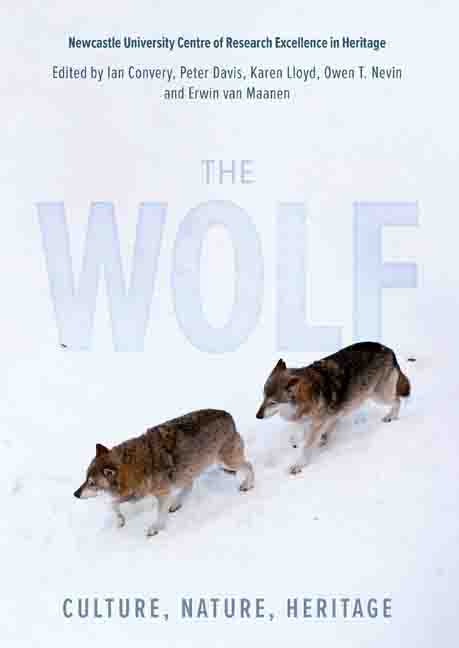Book contents
- Frontmatter
- Dedication
- Contents
- List of Illustrations
- Preface and Acknowledgments
- List of Abbreviations
- Poem: Trophic Cascade by Camille T Dungy
- Foreword
- Part I Imagining the Wolf
- Part II What Makes the Wolf
- Part III Return of the Wolf
- Part IV Personal Encounters
- Afterword: The Ecological Disadvantage of Living on an Island
- Glossary
- List of Contributors
- Index
Preface and Acknowledgments
Published online by Cambridge University Press: 10 January 2024
- Frontmatter
- Dedication
- Contents
- List of Illustrations
- Preface and Acknowledgments
- List of Abbreviations
- Poem: Trophic Cascade by Camille T Dungy
- Foreword
- Part I Imagining the Wolf
- Part II What Makes the Wolf
- Part III Return of the Wolf
- Part IV Personal Encounters
- Afterword: The Ecological Disadvantage of Living on an Island
- Glossary
- List of Contributors
- Index
Summary
In North America, and more recently in Europe, the grey wolf (Canis lupus, and its close relative the Eurasian wolf, Canis lupus lupus) have staged a remarkable recovery over the last few decades. In this book we explore various aspects of this recovery, alongside some of the history, literature and myth surrounding this most iconic of species. We also meet some wolves that have headed south and consider the many faces of the dingo – from outback wolf to feral dog, and the Tasmanian wolf that never was a wolf. Perhaps no other species has polarised human opinion more than the wolf, a trend which continues to this day. The wolf can be simultaneously an inspirational emblem of the wild and an embodiment of evil, a pest to be managed or worse, eradicated (as was the case in the UK). In other books and papers, many of the authors in this volume have spoken of the need for compassion and coexistence with non-human species, even if at times this means accepting that our behaviour has to change and this might come at a cost.
As with our previous work on bears, we knew that there was a rich seam of information to mine here – not only on the biology and taxonomy of wolves, but more importantly on the human-wolf relationship and how this has been expressed in folklore, in first nations’ societies, in adult and children's literature, in exhibitions, zoos, museums and in art. Given a book of this scope, it was also inevitable that we would end up invoking Godwin's Law, and the emergence of Nazi Werewolves from Outer Space. We wanted also to discuss how our perception of wolves is influenced by the manner in which they are revealed to the public in the wild, to the fascinated gaze of tourists.
To achieve these wide-ranging aims we have been fortunate to bring together a distinguished field of authors, all of whom have addressed wolf species from different standpoints. To all of them we are extremely grateful for their time, expertise and patience, but especially so to the two doyens of wolf studies and rewilding, Luigi Boitani and Mark Fisher, who have kindly provided the Foreword and Afterword for this book
Information
- Type
- Chapter
- Information
- The WolfCulture, Nature, Heritage, pp. xv - xviPublisher: Boydell & BrewerPrint publication year: 2023
